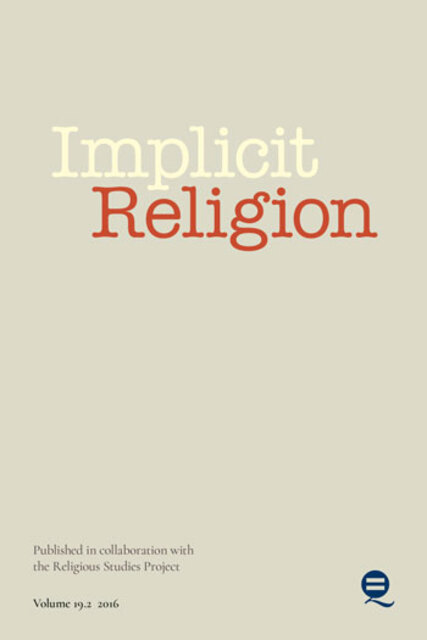Zombies Roaming Around the Pantheon

Full description
The present contribution explores how the field of Roman History has formalized and justified the absence of “belief”—and religious belief in particular—as part of its standard research programme. In positing an unbridgeable gap between ancient Romans and modern human beings mainly based on the idea that “belief” and “faith” are modern Protestant concepts, Roman History inadvertently transmogrified its subjects of study into a legion of zombies incapable of holding meta-representations of their own religious (and non-religious) beliefs. While Roman History might have been an outlier in its staunch commitment to this exclusionary approach, the post-1970s move towards the abandonment of “belief” insofar as the study of ancient religion(s) is concerned was part of a widespread paradigm shift within the Humanities, which only very recently has been questioned. The history of the concept of “belief” in both Roman History and anthropology, as well as its rejection from the former’s disciplinary toolbox, are tackled, while the peculiar disciplinary concepts of Roman “orthopraxy” and “demythicization” (sometimes hailed as explananda or replacements for the absence of “belief” in Roman antiquity) are also explained. Finally, a cognitive rebuttal of this absence is provided through a reappraisal of David Chalmers’ “philosophical zombies” mental experiment.
- typeImage
- created on
- file formatjpg
- file size13 KB
- container titleImplicit Religion
- creatorLeonardo Ambasciano
- issn1743-1697 (online)
- issue25.1/2
- publisherEquinox Publishing Ltd.
- publisher placeSheffield, United Kingdom
- rightsEquinox Publishing Ltd.
- volume
- doi
We use cookies to analyze our traffic. Please decide if you are willing to accept cookies from our website. You can change this setting anytime in Privacy Settings.
